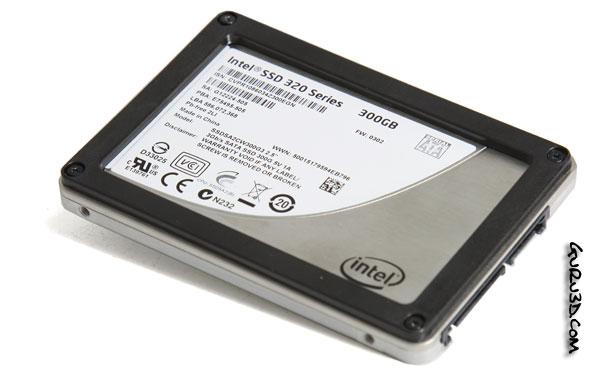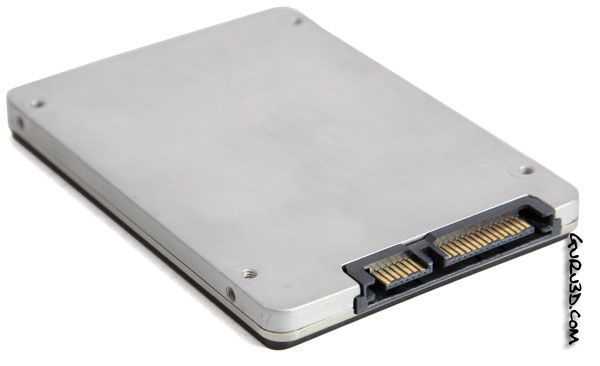Specifications and architecture
Specifications and architecture
Here's where we'll look a little deeper inside the actual product. The Intel 320 series is, as stated, an SSD based on MLC NAND flash memory. Interestingly enough the product sticks at a SATA2 (3G) interface as Intel did not move it into the new SATA 6G interface.
When we opened up the SSD, opposed to the 510 with a Marvel controller, we were surprised to see that for the 320 Intel uses their own proprietary Intel controller.
The SSD is available in many volume sizes: 40, 80, 120, 180, 300 and 600 GB versions are available. The products range from roughly 80 USD towards 900 USD for this 600GB version. Intel covers the unit with a 3 year warranty. Some key features:
| Brand | Intel |
| Type | 320 |
| Capacity | 300GB |
| Cache | 64MB |
| SSD-type | Multi Level Cell |
| SSD-controller | Intel |
| Trim | Yes |
| BUS Interface | SATA-300 |
| Size | 2.5" |
| Height | 9,5mm |
| SDD READ | 270MB/s |
| SDD WRITE | 205MB/s |
| Warranty | 3 years carry in |
The 10-channel controller itself is paired with cache memory to tackle an old SSD problem, dealing with many small files writing simultaneously. As such you'll find a decent 64MB Hynix DDR3-1333 SDRAM IC on the PCB. NAND FLASH wise, the 320 series are equipped with the new and cheaper to manufacture 25nm Intel NAND rated at 3,000 p/e cycles.

Intel includes a 3.5" adapter kit, a SATA cable and a 4-pin molex to SATA power adapter. A very complete bundle, something a lot of SSD vendors can learn from.

To understand the product we'll need to realize that there are primary technologies embedded into the storage unit. As such we'll continue the technology coverage in two stages:
- The SSD partitions paired with the controller
- SATA II 3 Gbit interface
We'll explain each one in a simple manner. Next page please.
